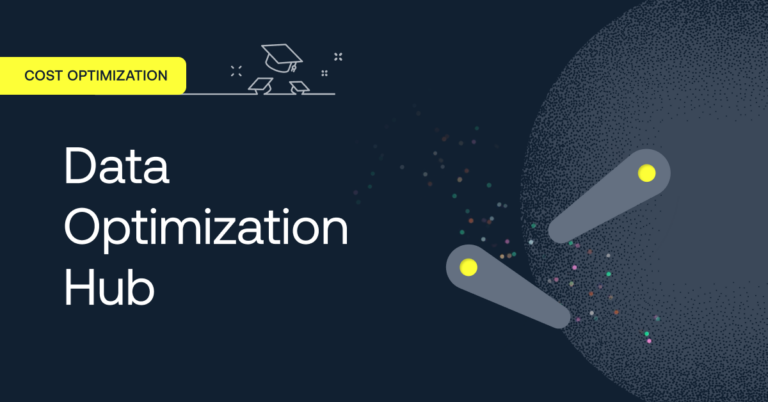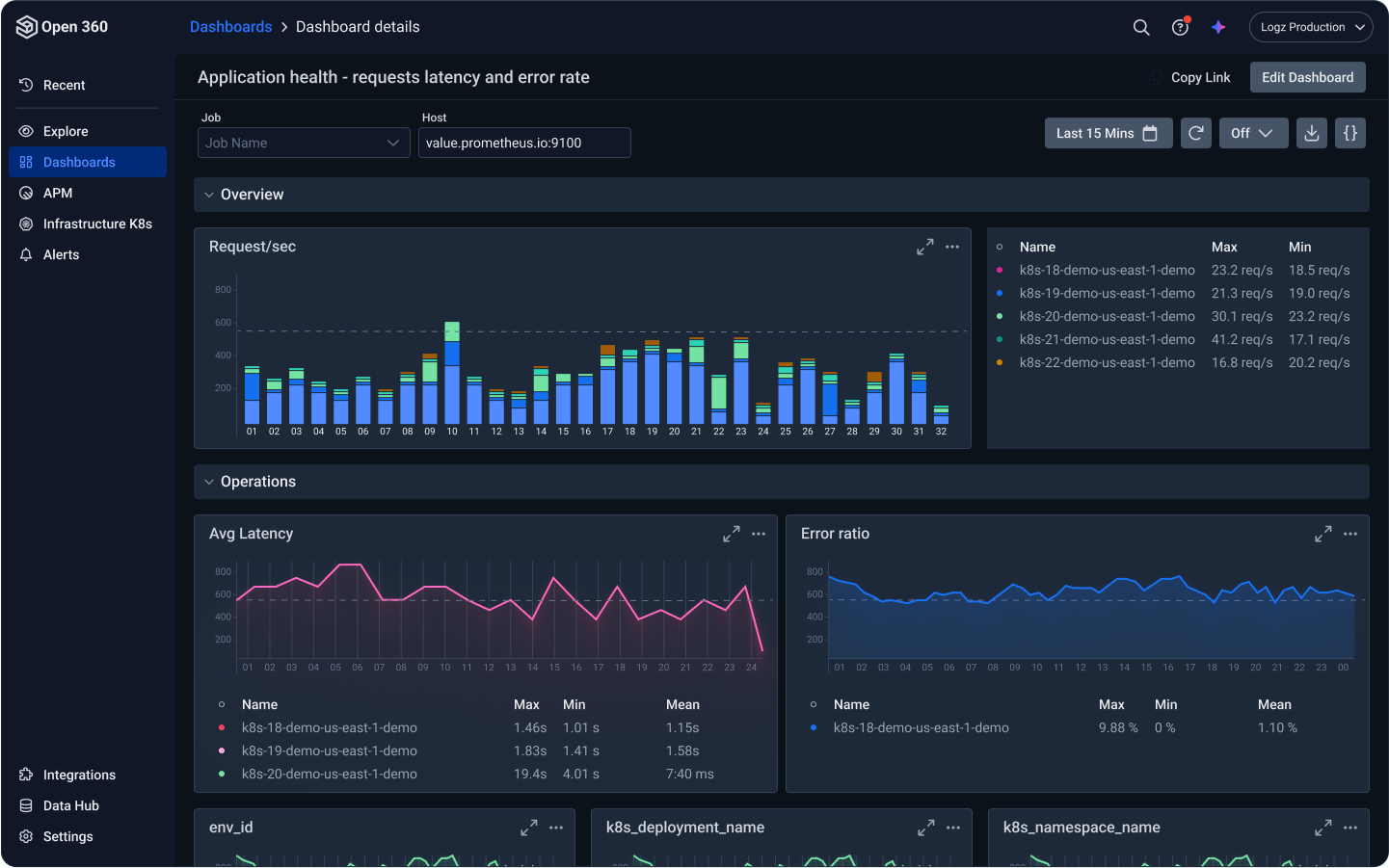
Logz.io Observability IQ Assistant: Practical AI that Helps You Work Smarter
May 21, 2024
AI has been the biggest macro-trend in technology for some time now, and the observability space is no exception to this rule.
Just look at the findings of the 2024 Observability Pulse Report; it’s evident that organizations are hungry for AI capabilities that help address pervasive issues of observability process maturity, the talent shortage, ever-increasing MTTR, and the skyrocketing cost of observability.
Increased use of AI, and generative AI integrations throughout the Logz.io Open 360™ observability platform, are precisely how we intend to help our customers address these daunting challenges.
Logz.io took a big step forward in advancing its Observability IQ™ AI strategy at the beginning of 2023 with the introduction of our initial generative AI integration — building on our longstanding crowdsourced AI and machine learning to add even greater context to our automated analysis and response.
And now we are taking the next step. Since the core value of the Open 360 platform is found in accelerating the correlation and investigation of large volumes of telemetry data — then recommending the fastest path to resolution — tapping into the power of generative AI clearly makes a lot of sense.
Introducing Observability IQ Assistant: Conversational AI for the Masses
We’re excited to announce that Logz.io customers recently gained access to our new Observability IQ Assistant, an AI-backed chat interface that enables users to converse directly with their data to better inform investigation.
We believe this is the obvious next step in leveraging generative AI to help our customers work smarter and faster. The idea being — much as our CTO Asaf Yigal talked about in his recent interviews at KubeCon EU 2024 — teams shouldn’t be forced to employ time-consuming querying and investigation to unearth their most pressing technical issues. Rather, their observability platforms should simply tell them: “here’s what you should look at now.”
While the time-honored approach of invoking threshold-based alerts certainly isn’t going away, IQ Assistant was designed to make analysts’ lives easier by performing investigations in a far more intuitive manner. In addition to proposing relevant questions using a context-aware approach, IQ Assistant is also designed to suggest the best paths of resolution, even faster — providing specific, informed response steps.
How IQ Assistant Works: Your Guided Observability Partner
Putting IQ Assistant to work is simple and straightforward — that’s the point of adding this intuitive AI-based capability, after all. The whole idea is to get useful information to drive up response and drive down MTTR.
Starting in the recently-launched Explore log querying interface — a user simply clicks on the “Observability IQ” button on the top right of the screen, which immediately activates the IQ Assistant.
Here, IQ Assistant automatically offers the user a range of insightful questions that can be executed against the service or data that the user is investigating, such as:
- How is our service health looking? Any alerting trends in requests, latency, or errors post-deployment?
- Which operations need attention? Let’s pinpoint our key areas to improve based on recent performance data.
- Is the service stable post-deployment? A quick check on how the latest changes are performing.
As you can see in these examples, not only is the system enabling analysis in a more conversational, intuitive tone, there’s an emphasis on investigating any issues that may have been introduced in recent deployments. This is a critical element for engineering and ops teams attempting to ensure that recent code changes haven’t created unforeseen problems.
It’s worth noting that these questions are also merely examples that the system generates to help teams get started. Users can garner even more value from their own unique questions which can be entered into the chat interface at any time.
Next, we can use one of these lines of analysis to dive deeper, generating detailed insights into any related latency, errors, or throughput rates. The information is communicated directly in the IQ Assistant interface to continue down this simple, straightforward path — while also surfacing additional insights necessary to perform meaningful investigation.
Importantly, if any increase in one of these key areas of performance is present, the system highlights this and provides context necessary to dive even further, and then enact resolution steps.
Another hugely useful element of the capability is found here in the “Conclusions” section — where IQ Assistant is not only capable of noting that there are some relevant issues found within the involved services, but also surfacing potential causes, such as a fluctuating service demand for response.
From there the user can dive deeper, asking the system questions of their own design, or continuing to click through to peel back the layers on the service that needs more attention. Some of those questions might include:
- What areas of my environment need attention?
- What are the recommended next steps?
- What is the quickest path to resolving issues we’re seeing?
Critically, the system also begins to generate “Recommendations” — drawn from Open 360’s understanding of proven response steps that will help address the given issue, thanks to our generative AI integration.
The Future of Observability is AI Powered
Moving beyond this initial launch, IQ Assistant will arrive in other areas of Open 360 in the coming weeks and months. Leveraging additional phases of the broader Logz.io Observability strategy and roadmap, it will also learn at the hands of its human users, becoming even more familiar with their environments and patterns of use.
Along with extension of this powerful capability, a long list of additional features are currently under development to accelerate core analysis and response processes, and to help surface issues even faster. These AI features will not only help transform the investigative process, but also in making the platform easier to use, more friendly and more accessible to less experienced users.
Like all of our existing AI capabilities, from our unique pipeline analytics, to our Anomaly Detection and Alert Recommendations, all of these upcoming Observability IQ features are designed to simplify and automate critical observability processes and make users’ lives easier.
In a market where observability solutions seem to be designed expressly to add costly new features that demand more of customers’ precious time and money, we believe that this pragmatic approach to AI truly differentiates Logz.io from the competition.
We’re extremely excited to undertake this bold step forward in evolving our platform and AI strategy — focused firmly on delivery of functions that help move the needle today.
If you haven’t yet experienced the Open 360 platform, sign up for a free trial today.




